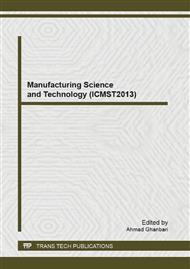p.1121
p.1126
p.1133
p.1140
p.1145
p.1149
p.1154
p.1158
p.1165
Optimal Management of Local Energy System Based on Distributed Energy Resource
Abstract:
In order to realize a low-carbon society, the introduction of low-carbon energy resources in the local (both urban and rural) energy systems, which plays a main role in the total CO2 emissions, is being paid more and more attention. In this study, the paths toward regional de-carbonization are indicated by conceptualizing systematic “urban-rural cooperation” that creates regional circulation of energy resources (e.g., biomass). As an illustrative example, an investigation has been conducted of assumed distributed energy systems for a model city in China. By extending a pre-developed plan and evaluation model to include not only cost minimization but also emissions minimization, the proposed wide urban-rural energy systems are examined from both economic and environmental viewpoints.
Info:
Periodical:
Pages:
1145-1148
Citation:
Online since:
September 2013
Authors:
Price:
Сopyright:
© 2013 Trans Tech Publications Ltd. All Rights Reserved
Share:
Citation:


